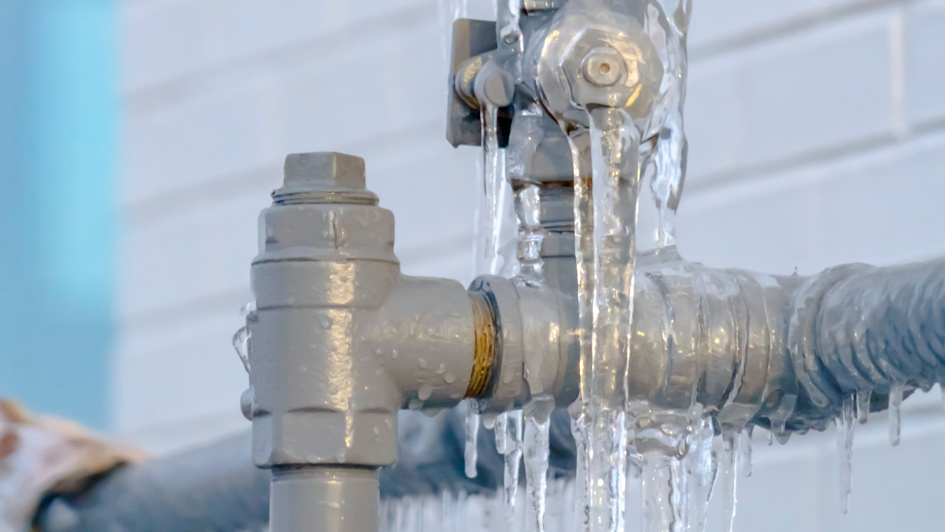
The snowy winter weather brings a fun day sledding down a nearby hill or snowball fights in the neighbor's yard. However, winter weather can be hard on your home. Extremely cold conditions can cause the water lines in your home to freeze and burst, which may lead to severe water damage and enduring negative effects.
When your pipes are frozen solid, you should contact a plumber in Wilkes Barre and Scranton to resolve the issue. Nevertheless, there’s multiple things you can do to prevent this from happening – and even just a bit of prevention can go a long way.
What Pipes Are at a Higher Chance of Freezing
The pipes at the largest risk of freezing are exposed water lines. Prevalent locations for exposed pipes are inside attic crawlspaces, near exterior walls, in the basement or even running beneath a modular home. Water lines that are not properly insulated are at the greatest risk.
How to Stop Pipes from Freezing Over in Your Home
Sufficiently insulating exposed water lines is a good first step to keeping your pipes free of ice. You’ll likely locate many of these materials from the local plumbing company, and may also already have some someplace in your home.
Try not to wrap other flammable insulation materials where they can light on fire. If you don’t feel confident insulating the pipes yourself, call your local plumbing services professional in Wilkes Barre and Scranton to get the job done right.
If you do choose to insulate the pipes yourself, common insulation materials for pipes include:
- Wraps or roll insulation: Multiple plumbers, hardware stores and national retailers provide insulation – typically fiberglass, foam wraps or pipe sleeves – that you can use to wrap or fit around your pipes. They are offered in various lengths and sizes to satisfy the needs of your home.
- Newspaper: To a decent degree, newspaper can be used as an insulator. If the weather is going to get cold and you aren’t able to put in more insulation in time, consider covering uninsulated pipes in this.
- Towels or rags: If you aren’t able to buy insulation and don’t have any newspaper to use, wrapping particularly vulnerable pipes with towels or clean rags as a last-ditch effort could be just enough to keep the cold air off the pipes.
An additional preventative step you can take to keep pipes from becoming frozen is to seal any cracks that can allow cold air into your home. Keep an eye on the window frames, which can let in surprisingly powerful drafts. Not only should this help to keep your pipes from freezing, but it will have the additional benefit of making your home more energy efficient.
Five More Ways to Keep Your Pipes from Freezing:
- Open the cabinet doors. Opening the cabinet doors underneath the sinks and other spaces of your home that have pipes will enable more warm air from the rest of the room to flow near the pipes.
- Letting water drip. Keeping the water flowing by letting your faucets drip even just a little can help thwart frozen pipes.
- Open interior doors. By opening doors between rooms or hallways, your home can be heated more equally. This is mostly important if you struggle with a room that is frequently colder or hotter than the remainder of your home.
- Close the garage door. The exception to the open doors recommendation is the garage door, which you should keep shut – especially if your water lines can be found near or under the garage.
- Keep the heat flowing. Experts recommend setting the thermostat at a stable temperature and leaving it there, rather than permitting it to get cooler at night. Set it no lower than 55 degrees.
How to Keep Pipes from Freezing in an Unused Home
When you’re in your own home, it’s easier to realize when something isn't right. But what extra steps can you try to prevent pipes from freezing in an empty home or vacation home when the damage from a frozen pipe may not be discovered for days or even weeks?
As with a primary residence, insulating any exposed water lines, opening interior doors throughout the home and winterizing the vacant home are the best steps to take.
Added Steps to Keep Pipes from Freezing in an Unused Home:
- Leave the heat on. Even though you aren’t going to be there, it’s best to keep the heat on – even if you adjust the thermostat down colder than you would if you were there. As with a primary house, experts encourage keeping the temperature at no colder than 55 degrees.
- Shut water off and drain the lines. If you’re going to be gone for a long time or are winterizing a rustic cabin or cottage, shutting the water off to the house and emptying the water out of the water lines is a good way to prevent pipes from freezing and bursting. Don’t forget to flush the water out of all appliances, such as the hot water heater, or the toilets. See to it that you get all the water from the pipes. If you’re unsure of how to flush the water from the pipes, or don’t feel confident doing it yourself, a plumber in Wilkes Barre and Scranton will be happy to offer support.
